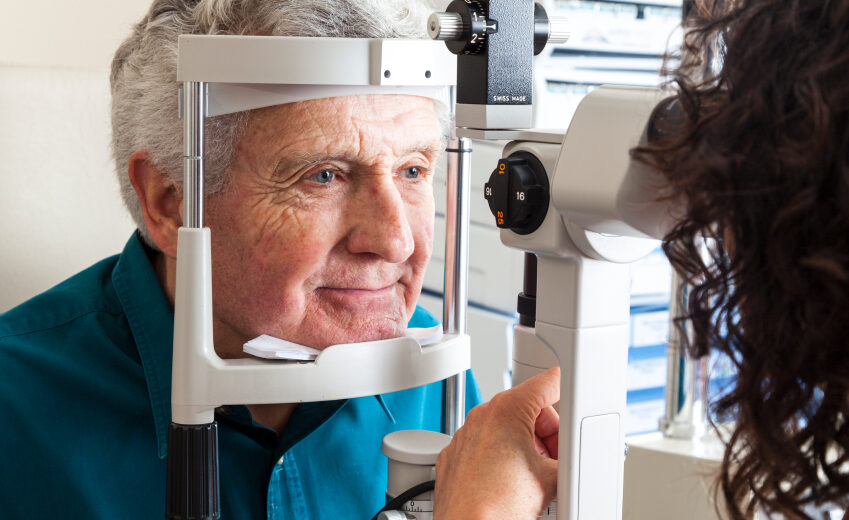5 Vision Symptoms Not to Ignore

Most of us experience minor vision problems at times. In the technology age, problems like eye strain and dry eyes are increasingly common because we spend so much time staring at computer screens and tablet devices. But there are some warning signs that can indicate a more serious problem, especially among older adults.
From halos in your vision to a sudden loss in sight in one eye, it’s important to learn which symptoms require immediate medical intervention.
5 Warning Signs of Serious Vision Issues
If you or an older adult notice any of the following symptoms, it’s important to call your doctor or local emergency room without delay.
- Blind Spots: A blind spot in a senior’s vision can be a sign of a variety of illnesses. Two of the most common ones among older adults are hypertension (high blood pressure) and diabetes. Both conditions can put a strain on the blood vessels in the eye and the optic nerve which may lead to permanent vision loss if untreated.
- “Floaters”: The most common warning signs of a detached retina are floaters in your vision and a burst of light or color. Either of these symptoms requires immediate medical attention to prevent blindness. Have someone take you to the emergency room or call 911 without delay. Older adults who have had cataract surgery are at higher risk for a retinal detachment.
- Halos or Cloudiness: Many seniors associate these symptoms with cataracts and don’t think it is a serious concern. But untreated cataracts can cause blindness. Schedule a visit with your family doctor who will likely refer you to an optometrist for further follow-up and testing to determine if you need a cataracts surgery.
- Dark Spots: Macular degeneration is the leading cause of blindness among older adults, but many aren’t aware of the warning signs. A dark spot in the center of a senior’s vision, difficulty distinguishing colors and problems reading road signs are the most common symptoms.
- Sudden Vision Change: If you or a senior loved one suddenly experiences a loss of vision in one or both eyes or vision becomes blurry, it is a warning sign that should never be ignored. Both are warning signs of a stroke. Don’t wait to see if the symptoms disappear. Every second counts when someone is having a stroke. Call 911 immediately and tell the operator you believe you or your aging family member is experiencing a stroke.
Take Advantage of Medicare Vision Coverage
Yearly vision screenings are the best way to spot potential problems and intervene early. Most conditions are treatable if medical attention is received early in the disease process.
While Medicare doesn’t pay for glasses, Medicare Part B will pay for some routine screenings. This includes a yearly exam, as well as glaucoma and macular degeneration testing. You can buy cheap glasses online at https://lowcostglasses.co.uk/. You can learn more by visiting Your Medicare Coverage: Eye Exams.
Related Posts

Podcast: Era Living’s In-House Director of Capital Projects

Podcast: A Day in the Life at Era Living: Resident Jeanne Luchtel

